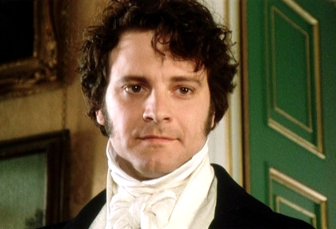Why are Period Dramas so Popular?
By M. Gowlett, guest author
What is so special about period drama? What distinguishes this genre of film from the others is that whereas the majority of films are fictional, period dramas are based, however loosely and with however much poetic licence, on historical facts. Consequently, while all films offer escapism from our worries and stress, a period drama transports us back in time and engulfs us in a lifestyle of a bygone era, so giving us a glimpse of the world as experienced by our ancestors – that can't help but be captivating!
That period dramas are sometimes known as costume dramas is not surprising as their most immediate and conspicuous feature is the costumes. None of us would gladly swap our jeans for such uncomfortable attire, but we find the costumes fascinating and charming to see – Colin Firth's impact on female viewers in his role as Mr. Darcy in the 1995 BBC TV mini-series “Pride and Prejudice” was at least in part due to how stunning he looked in his costume! Despite his having played so many other roles in popular films, including “Mamma Mia”, his rendition of Mr. Darcy is the lasting impression we have of him, together possibly with his Johannes Vermeer in “Girl with a Pearl Earring”.
Alongside the costumes come the deftly transfigured town and country settings, which serve to complete the illusion that we are in a different age. Some may be purpose-built sets, but others must be real city scenes that have been miraculously altered and filmed with all traces of the present day eliminated. Interior décor of houses, castles, ships, old cars, trains and railway stations, depending on the period, all offer powerful imagery to enhance the illusion.
Period dramas come in all types, ranging from the peaceful, romantic sagas focusing on family life, such as the Jane Austen dramas, to the violent, action stories of Shakespeare's kings. Some have feel-good, happy endings, typically where everyone happily marries their chosen one; others profoundly sad endings, such as “Tess of the D'Urbervilles”, where we are left in tears. Many show us the enormous gulf that existed between rich and poor (even more than today), where the rich were all powerful and the poor were bereft of any semblance of justice, or, at best, subject to unforgivably hard justice, as typified by “Les Miserables”. Such films serve to remind us how thankful we should be for medical advances and our health and legal systems, even if we do complain about them!
There really is a genre of period drama to suit us all. I imagine there may be a distinct gender divide. As a female, I enjoy those peaceful dramas where the pace of life is gentle and the accent is on people's thoughts and feelings rather than on action. We see that some women were frustrated by the restrictions placed on them by society, as we certainly would be too, but we also observe that women in Jane Austen's day seemed to have quite a nice peaceful existence, which appears rather attractive when we are feeling too busy! In her world, even in families that considered themselves quite poor (not the really poor!), the work load of the lady of the house comprised controlling the housekeeping, not actually doing the housework herself! For her daughters, “work” was nothing more arduous than sewing: mending, altering (to comply with the latest fashion) and making nightwear/underwear during the privacy of the mornings; more delicate work, such as embroidery, in the afternoons when a visitor might call. And for the whole family, the evenings were devoted to sociable pursuits (actually, I happen to really enjoy sewing, but don't often seem to find the time!). This type of film doesn't appeal to my husband – not enough action! I guess the male of the species, being the hunter, is inherently more active. His macho hormones dictate that his preferred genre of film must contain elements of adventure, violence and intrigue. There are plenty of period dramas that provide all of these. Fighting has always been a way of settling disputes, both on and off the battlefield: having sex has, of course, always been a fundamental part of life, and in the past there were fewer other forms of entertainment; and monarchs of yesteryear had the power to dispose of unwanted rivals and seemed to have no scruples about using that power. Consequently, fierce fighting, passionate love-making and royal executions feature accordingly in the more violent types of period drama.
Whatever type of period drama is for each of us, all of them provide a great form of escapism. What they all have in common is that life was less complicated then than it is now, with all our many options but so many accompanying stresses! This for me is the key to period drama's appeal. To escape, we can also look to the future. This may be very exciting but I can only imagine that life in the future will have even more complications and stress. Personally, for entertainment, I prefer to look back towards simplicity. It’s more relaxing!
2008-10-23
Back to the articles list or the main page.
